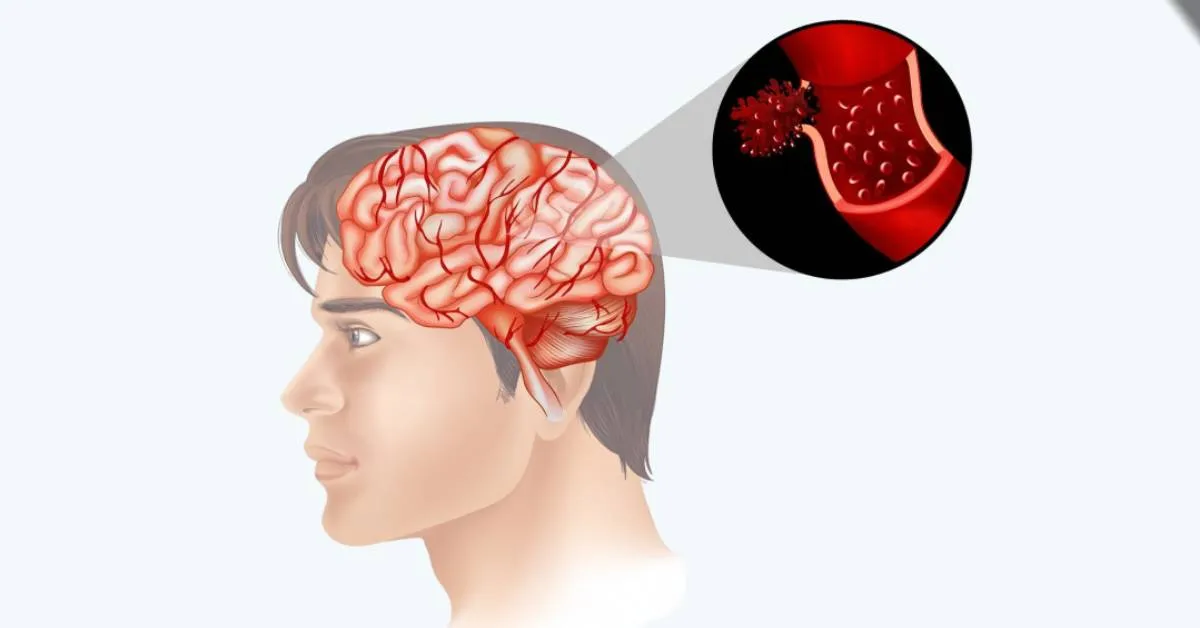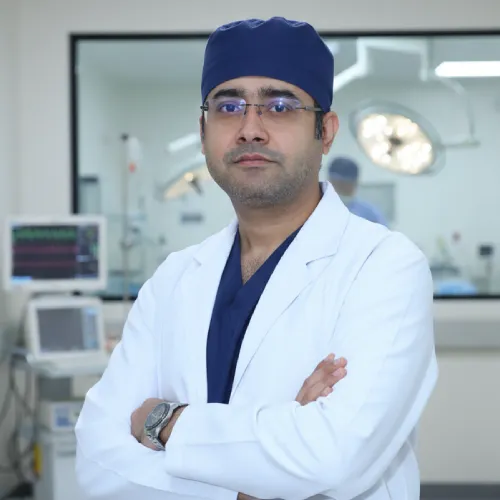Blood Clots in the Brain: A Guide to this Neurological Disorder
October 09, 2025 | By Dr. Kashish Sharma

A sudden, severe headache that feels different from others can be alarming. When it's paired with confusion, weakness, or trouble speaking, it should never be ignored. These can be warning signs of a serious neurological disorder, such as a blood clot in the brain, also known as an ischemic stroke.
Understanding what causes a brain clot and how to recognize its symptoms is crucial. Quick medical action can save a life and dramatically improve the outcome. If you or a loved one experiences these signs, it's vital to seek immediate help from a neurology specialist in Meerut.
What is a Blood Clot in the Brain?
A blood clot in the brain occurs when the blood flow to a part of the brain is blocked. Your brain needs a constant supply of oxygen-rich blood to function. When a clot cuts off this supply, brain cells can begin to die within minutes. This event is a type of stroke called an ischemic stroke.
The clot can either form directly in an artery within the brain or travel from another part of the body (like the heart) and become lodged in a smaller brain artery.
Common Causes and Risk Factors
Blood clots often develop due to underlying health conditions. Key risk factors include:
- High Blood Pressure: Damages artery walls, making them prone to clots.
- Atherosclerosis: The hardening and narrowing of arteries due to plaque buildup.
- Atrial Fibrillation (AFib): An irregular heartbeat that can cause clots to form in the heart.
- High Cholesterol: Contributes to the plaque buildup in arteries.
- Diabetes: Affects blood vessel health and circulation.
- Lifestyle Choices: Smoking, obesity, and a lack of physical activity increase the overall risk.
Recognizing the Warning Signs
The symptoms of a brain clot appear suddenly. It's crucial to know what to look for. Use the F.A.S.T. acronym to remember the key signs:
- F – Face Drooping: Does one side of the face sag or feel numb? Ask the person to smile.
- A – Arm Weakness: Is one arm weak or numb? Ask the person to raise both arms. Does one drift down?
- S – Speech Difficulty: Is speech slurred? Is the person unable to speak or hard to understand?
- T – Time to Call Emergency Services: If you see any of these signs, call for an ambulance immediately.
Other sudden symptoms include:
- A severe headache with no known cause
- Trouble seeing in one or both eyes
- Dizziness or loss of balance
- Sudden confusion or trouble understanding
How We Diagnose Brain Clots
At a leading brain and spine hospital like Nova, our specialists use advanced imaging to quickly diagnose the problem. The process includes:
- CT Scan or MRI: These scans create detailed images of the brain to identify a clot or rule out bleeding.
- Angiography (CTA or MRA): This specialized imaging looks directly at the blood vessels to find the exact location of the blockage.
- Blood Tests: To check for clotting issues, blood sugar levels, and cholesterol.
- Heart Tests (ECG): To see if the clot originated in the heart.
Advanced Neurology Treatment Options
When it comes to treating a brain clot, time is critical. The most effective neurology treatment is given within the first few hours of symptoms appearing.
- Clot-Busting Drugs (Thrombolysis): This medication is given intravenously to dissolve the clot and restore blood flow. It must be administered within a specific time window to be effective.
- Mechanical Thrombectomy: For larger clots, a specialist guides a catheter through an artery to physically remove the clot from the brain.
- Blood Thinners: After the initial emergency, medications may be prescribed to prevent future clots.
- Rehabilitation: Physical, occupational, and speech therapy are essential parts of recovery to help regain lost skills and function.
Take Control of Your Neurological Health
A blood clot in the brain is a medical emergency, but with fast action, recovery is possible. At Nova Hospital & Research Centre, our team, including the best neurologist in Meerut, provides expert emergency care and comprehensive rehabilitation to support you on your recovery journey.
If you notice any warning signs, seek help immediately. For non-emergency concerns or follow-up care, schedule a consultation with our neurology specialists today.
